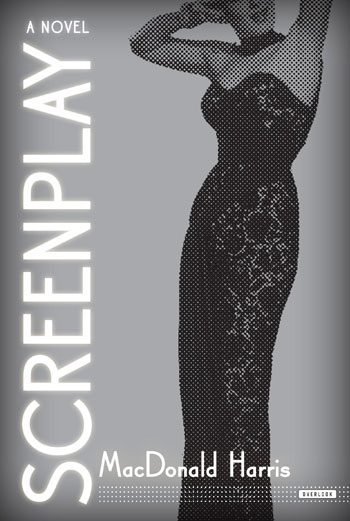First off, congrats to Rachael Rakes and Leo Goldsmith, who’ve won a grant from the Creative Capital/Warhol Foundation Arts Writers Program to complete their book project, Distant Present: The Radical Art and Ideas of Peter Watkins. The curators and writers whose work you’ll have seen in the Brooklyn Rail, Artforum and so on, will “investigate the contribution that Peter Watkins’s output from the 1970s through the present has made to contemporary media theory and collaborative critical practice. It will demonstrate that Watkins’s processes prefigure those of moving-image documentary works in contemporary art and gallery contexts. Finally, this book argues for Watkins’s crucial place within an aesthetically rigorous, broad, and international set of thinkers and artists working in diverse disciplines and backgrounds.”
Miranda July‘s debut novel, The First Bad Man, will be out on January 13.
Writing for the TLS, Iain Sinclair declares Werner Herzog: A Guide for the Perplexed: Conversations with Paul Cronin to be “a blockbuster performance of telling and hiding: remembering, denying, cursing, reliving traumas and triumphs; picking over all the projects, triumphant and forgotten. This much revised and updated version of the one published in 2002 is an invaluable guide to a hard-fought life and career. It is a black bible of verbiage, controlled rants and recollections, fit to stand beside any of the wandering director’s savage pilgrimages.” The TLS is also running Alan Hollinghurst‘s 1982 review of Fitzcarraldo.
Alys, the “cinephile protagonist of [Donald Heiney aka MacDonald Harris’s] Screenplay, first published in 1982, develops real trouble with his sense of what is and isn’t real, and the novel, newly reissued by Overlook Press, teases out a malaise that movie going is shown to both soothe and exacerbate,” writes Michelle Orange for Slate:
The “addiction” to cinema Alys describes is one Walker Percy defined in his classic 1961 novel The Moviegoer, in which another 30-ish, male protagonist discovers in the movies a world preferable to—and more real than—his own. In her recent Lila, Marilynne Robinson’s title character finds relief at the Cineplex, where for a recuperative period she hides from her own life. More so than moviegoing, movie legend has inspired speculative fictions, including Joyce Carol Oates’s Blonde, a gloss on the life of Marilyn Monroe, and Jess Walters’s more recent Beautiful Ruins, which reimagines for one of its storylines the disastrous shooting of Elizabeth Taylor’s Cleopatra. Screenplay mixes the possibilities of both types of novels—involving a shared cultural past and a more personal pastime—to instructive effect: Every fantasy has its price.
“It is impossible to discuss British author Ted Lewis’s 1970 novel, Jack’s Return Home, without mentioning its better-known 1971 film adaptation, Get Carter,” writes Andrew Nette for the Los Angeles Review of Books. The novel “and its subsequent prequels, Jack Carter’s Law (1974) and Jack Carter and the Mafia Pigeon (1977), have recently been rereleased by Syndicate Books, which marks the first time they have been available in North America for 40 years. The blurbs at the beginning of the new versions represent a who’s who of muscular crime fiction: Dennis Lehane, David Peace, Derek Raymond, James Sallis, Stuart Neville, and John Williams. Williams, author of The Cardiff Trilogy, describes Get Carter as ‘the finest English crime novel ever written.’ Raymond and Peace credit him not only with influencing their work but also with kick-starting noir fiction in the UK.”
RogerEbert.com has posted two excerpts in the past couple of days, the first from Peter Rainer‘s Rainer on Film: Thirty Years of Film Writing in a Turbulent and Transformative Era and the second from Eric Kohn‘s Harmony Korine: Interviews.
Scott Saul’s Becoming Richard Pryor “breaks new ground, even if it has a tendency to take its insights very seriously and its audience’s knowledge of the Pryor oeuvre for granted,” writes Janet Maslin in the New York Times.
Meantime, hey. Verso‘s having a 50% off sale through December. Here‘s the Film & Media section.
For news and tips throughout the day every day, follow @KeyframeDaily. Get Keyframe Daily in your inbox by signing in at fandor.com/daily.




